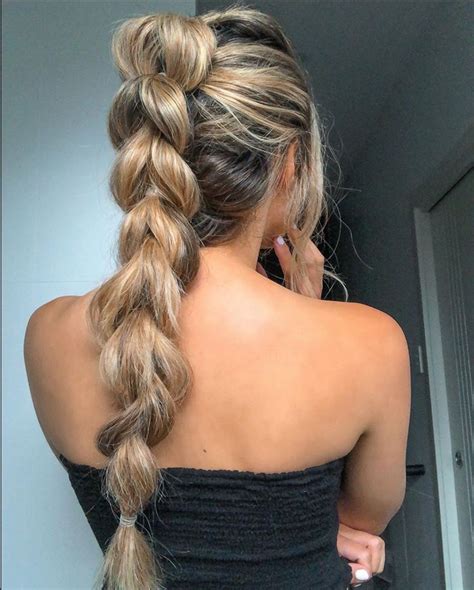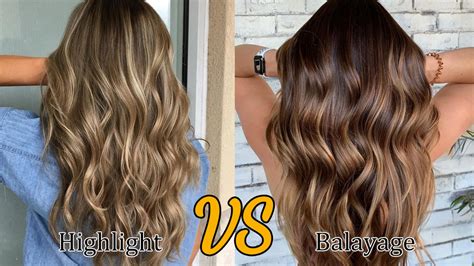Introduction
In the realm of hair coloring, balayage and highlights reign supreme as two of the most popular techniques. Both methods can enhance your hair by adding depth, dimension, and brightness. However, they differ significantly in their execution and results. This comprehensive guide will delve into the nuances of balayage vs. highlights, empowering you to make an informed decision about the perfect coloring method for your hair.

Balayage Hair
What is Balayage?
Balayage is a French technique that involves hand-painting color onto the hair using a sweeping motion. The stylist carefully selects sections of hair to create a seamless, sun-kissed effect that mimics natural highlights. Balayage is renowned for its subtle, sophisticated finish and the absence of harsh lines.
Benefits of Balayage:
- Natural-looking, sun-kissed effect
- Customizable to suit individual preferences
- Can be used on all hair colors and textures
- Less damaging than traditional highlighting techniques
- Low-maintenance and grows out gracefully
Highlights
What are Highlights?
Highlights are a more traditional hair coloring technique that involves lightening individual sections of hair using foils or a cap. The process creates a more defined, contrasting look that can instantly transform your hair. Highlights are typically placed in a consistent pattern, resulting in a more noticeable effect than balayage.
Benefits of Highlights:
- Bold and dramatic color transformation
- Can enhance the texture and movement of hair
- Ideal for creating a focal point or framing the face
- Effective at concealing gray hair
Comparison of Balayage vs. Highlights
| Feature | Balayage | Highlights |
|---|---|---|
| Technique | Hand-painted | Foils or cap |
| Effect | Natural, sun-kissed | Dramatic, contrasting |
| Customization | Highly customizable | Consistent pattern |
| Damage | Less damaging | More damaging |
| Maintenance | Low-maintenance | Requires more frequent touch-ups |
Common Mistakes to Avoid
Balayage:
– Over-highlighting can result in a brassy or unnatural look.
– Applying color too thickly can create harsh lines and an uneven finish.
– Failing to blend the colors properly can lead to a patchy appearance.
Highlights:
– Using too little bleach can result in insufficient lightening.
– Using too much bleach can damage the hair and create a brittle texture.
– Over-bleaching can lead to yellow or orange tones.
Step-by-Step Approach
Balayage:
1. Determine the desired color and placement of highlights.
2. Section the hair and apply color using a sweeping motion.
3. Blend the colors carefully to create a seamless effect.
4. Allow the hair to process according to the manufacturer’s instructions.
Highlights:
1. Section the hair and wrap sections in foils or place a cap on the head.
2. Apply bleach to the sections and process according to the manufacturer’s instructions.
3. Rinse the bleach and apply toner to achieve the desired color.
Understanding Your Needs
Before choosing between balayage and highlights, consider the following factors:
- Desired effect: Do you prefer a natural, subtle look or a more dramatic transformation?
- Hair type: Balayage is suitable for all hair types, while highlights may be more damaging to fine or fragile hair.
- Maintenance: Balayage requires less frequent touch-ups than highlights.
- Budget: Highlights typically cost more than balayage due to the increased time and labor involved.
Conclusion
Balayage and highlights are both exceptional hair coloring techniques that can enhance your appearance. By understanding the differences between them and evaluating your individual needs, you can make an informed decision that will result in a stunning and flattering hair transformation. Remember to consult with a professional hairstylist to ensure the perfect shade and technique for your unique style.
